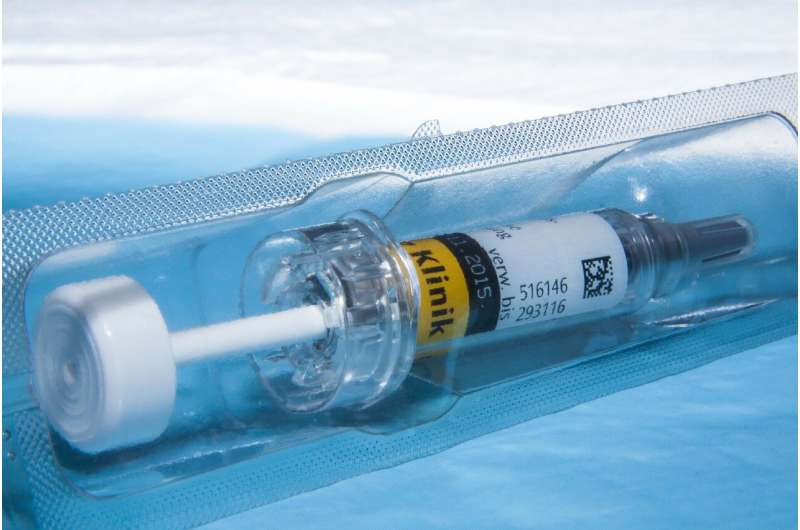Single Antibody Identified as Cause of Severe Blood Thinner Reaction

New research identifies a single antibody as the cause of life-threatening reactions to heparin, revealing potential for more accurate diagnosis and targeted treatment of HIT, a serious blood disorder.
Researchers from McMaster University have uncovered a groundbreaking discovery regarding a rare, yet potentially fatal, immune reaction to the commonly used blood thinner, heparin. This complication, known as heparin-induced thrombocytopenia (HIT), affects approximately 1% of hospitalized patients receiving heparin treatment. Nearly half of these cases result in life-threatening blood clots, which can lead to strokes, heart attacks, amputations, and even death. Detecting and managing HIT promptly are critically important in clinical settings.
Traditionally, it was believed that multiple types of antibodies contributed to the immune response causing HIT. However, recent findings published in the New England Journal of Medicine challenge this view. The study revealed that in all tested patients, only a single antibody was responsible for the disease, while other antibodies acted as a 'smokescreen,' obscuring the true causative agent. This insight allows for a more precise identification of the antibodies involved, which can dramatically improve diagnostic accuracy and treatment strategies.
"This study not only redefines our understanding of HIT but also influences our perception of immune responses overall," said Ishac Nazy, the study's senior author and director of the McMaster Platelet Immunology Laboratory. He explained that previous misconceptions contributed to high false-positive test results and misdiagnoses, leading to unnecessary or harmful treatments. The new findings pave the way for better, targeted therapies and more reliable diagnostic tests.
The research involved analyzing blood samples from nine patients diagnosed with HIT. The scientists discovered that the antibodies targeting platelet factor 4 (PF4)—a protein critical for blood clotting—were monoclonal. This indicates that HIT is primarily driven by a highly specific immune response rather than a broad, generalized one.
"Understanding that a monoclonal antibody causes HIT opens up opportunities to develop specialized tests and treatments tailored to this mechanism," said Jared Treverton, the study's first author. These advancements will benefit hematologists, laboratory specialists, and researchers globally, especially in settings where patients are treated with heparin.
This discovery underscores the importance of fundamental scientific research in advancing clinical care. The collaborative effort included scientists from McMaster's MCTR and the University of Massachusetts Amherst. Overall, this research marks a significant step forward in preventing, diagnosing, and managing a serious blood disorder that can have devastating consequences for patients.
Stay Updated with Mia's Feed
Get the latest health & wellness insights delivered straight to your inbox.
Related Articles
Breakthrough in Antifungal Research Offers New Hope Against Drug-Resistant Infections
Researchers at King's College London have developed a new class of antifungal compounds that show promise against the drug-resistant fungus Candida auris, offering hope for more effective treatments of life-threatening infections.
Enhancing Cardiac Diagnosis in Gland Disorders with Dual-Modality Imaging
Cutting-edge dual PET/MRI imaging enhances the diagnosis and management of heart damage in gland disorders, offering precise subtype classification and monitoring treatment response.
Balancing Benefits and Risks of Lung Cancer Screening: What You Need to Know
Lung cancer screening can save lives through early detection, but it also carries risks like overdiagnosis, unnecessary procedures, and incidental findings. Learn about the benefits and potential harms of screening programs.



